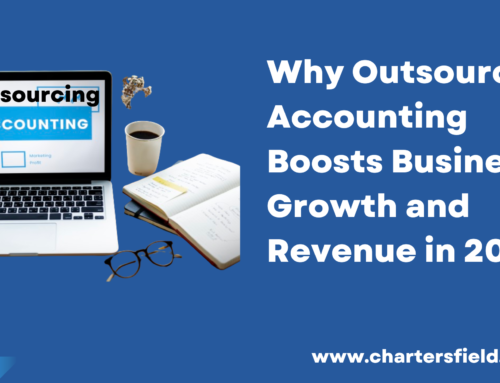Introduction:
Efficiency reigns supreme in the realm of business operations, with payroll management standing as a pivotal cornerstone. Yet, amidst the labyrinth of payroll processing intricacies and regulatory hurdles, many businesses find themselves ensnared in inefficiencies. In this digital era, where optimization is key and every resource must be maximized, traditional payroll management methods often falter. Enter outsourcing payroll services, a beacon of efficiency and transformation for businesses seeking to streamline their operations.
Today’s competitive landscape demands agility and adaptability, qualities that outsourcing payroll services readily offer. By entrusting payroll tasks to external experts, companies can reallocate valuable resources and focus on their core competencies. But the benefits of outsourcing extend far beyond mere task delegation; it’s a strategic move that can revolutionize how businesses operate.
In this comprehensive exploration, we delve deep into the realm of outsourcing payroll services, uncovering why it’s a game-changer for businesses of all sizes. From dissecting the fundamental components of payroll services to dissecting the strategic advantages of outsourcing, we embark on a journey to unearth the transformative power of payroll management outsourcing. So fasten your seatbelts as we navigate the landscape of efficiency, uncovering the untapped potential that lies within outsourcing payroll services.
1. The Evolution of Payroll Management: A Historical Perspective
Over the years, payroll management has evolved significantly, mirroring the advancements in technology and business practices. Historically, payroll was a manual process involving ledger books and calculations done by hand. However, with the introduction of computers and software, payroll processing became more efficient but still required considerable time and resources. Outsourcing payroll services represents the latest shift in this evolution, offering businesses access to specialized expertise and advanced technology. This historical perspective highlights the journey of payroll management from its humble beginnings to its current status as a strategic function within organizations.
2. Understanding the Core Components of Payroll Services
Payroll services encompass several critical components, each playing a vital role in ensuring accurate and timely compensation for employees. Payroll processing involves calculating wages, deductions, and taxes, which can be complex and time-consuming. Tax filing and compliance ensure that businesses adhere to legal and regulatory requirements, avoiding penalties and fines. Employee self-service portals empower employees to access their payroll information conveniently, reducing administrative overhead. Understanding these core components is essential for businesses seeking to optimize their payroll processes.
3. The Pitfalls of In-House Payroll Management: Challenges and Solutions
Managing payroll in-house presents numerous challenges, including the risk of errors, compliance issues, and inefficiencies. Manual processes are prone to mistakes, leading to inaccuracies in employee payments and tax filings. Additionally, keeping up with constantly changing tax regulations can be daunting for internal teams. Outsourcing payroll services addresses these challenges by leveraging specialized expertise and technology. External providers have the knowledge and resources to ensure accurate and compliant payroll processing, freeing up internal resources to focus on core business activities.
4. The Strategic Advantages of Outsourcing Payroll Services
Outsourcing payroll services offers strategic advantages for businesses, including cost savings, access to expertise, and enhanced compliance. External providers often have economies of scale that enable them to offer competitive pricing compared to in-house solutions. Moreover, outsourcing provides access to specialized knowledge and technology that may not be available internally. This expertise ensures accurate and compliant payroll processing, reducing the risk of penalties and fines. Overall, outsourcing payroll services allows businesses to focus on their core competencies while leaving payroll management to the experts.
5. Key Considerations in Choosing the Right Outsourcing Partner
Selecting the right outsourcing partner is crucial for the success of a payroll outsourcing initiative. Businesses should consider factors such as the provider’s reputation, experience, and range of services offered. It’s essential to assess the provider’s ability to scale and adapt to the business’s needs over time. Additionally, data security and confidentiality are critical considerations, given the sensitive nature of payroll information. By conducting thorough due diligence and selecting a reputable outsourcing partner, businesses can ensure a smooth transition to outsourced payroll services.
6. Data Security and Confidentiality: Ensuring Compliance in Outsourced Payroll
Data security and confidentiality are paramount when outsourcing payroll services. Businesses must ensure that their outsourcing partner adheres to strict security protocols and complies with data protection regulations. This includes implementing encryption, access controls, and secure transmission methods to protect sensitive payroll information. Additionally, contractual agreements should outline the provider’s responsibilities regarding data security and confidentiality. By prioritizing data security, businesses can mitigate the risk of data breaches and maintain the trust of employees and stakeholders.
7. Streamlining Processes: How Outsourcing Enhances Workflow Efficiency
Outsourcing payroll services streamlines processes and enhances workflow efficiency through automation and technology. External providers offer advanced payroll processing software that automates routine tasks such as data entry and calculations. This reduces the time and resources required for payroll processing, freeing up internal teams to focus on strategic activities. Moreover, outsourcing providers have expertise in optimizing payroll processes, further improving efficiency and accuracy. By leveraging outsourcing to streamline processes, businesses can enhance productivity and reduce operational costs.
8. Mitigating Risks and Errors: The Role of Expertise in Outsourced Payroll Services
Expertise is a key advantage of outsourcing payroll services, particularly concerning tax regulations and compliance. External providers employ specialists who stay abreast of changes in tax laws and regulations, ensuring accurate and timely payroll processing. Additionally, outsourcing providers offer audit support and compliance assistance to help businesses navigate regulatory requirements. This expertise minimizes the risk of errors and reduces the likelihood of penalties and fines. By leveraging the expertise of outsourcing providers, businesses can achieve peace of mind, knowing that their payroll processes are in capable hands.
9. Scalability and Adaptability: Meeting Business Needs Through Outsourcing
Outsourcing payroll services offers scalability and adaptability to meet the evolving needs of businesses. External providers can scale their services up or down based on business requirements, accommodating growth, seasonal fluctuations, or changes in workforce size. This scalability ensures that businesses have the resources they need to support their operations effectively. Additionally, outsourcing providers can adapt to changes in regulatory requirements, ensuring continued compliance with tax laws and regulations. By leveraging outsourcing for payroll services, businesses can maintain agility and flexibility in a dynamic business environment.
10. Enhancing Employee Experience: The Impact of Outsourced Payroll Services on Workforce Satisfaction
Outsourcing payroll services can have a positive impact on the employee experience by providing accurate and timely payments, access to self-service tools, and responsive customer support. Employees benefit from convenient access to their payroll information, reducing the need for manual inquiries or paperwork. Moreover, outsourcing providers offer dedicated customer support to address employee questions or concerns promptly. By enhancing the employee experience, businesses can foster greater satisfaction, loyalty, and engagement among their workforce, ultimately contributing to a positive workplace culture.
Conclusion:
In conclusion, outsourcing payroll services emerges as a transformative solution for businesses seeking to optimize efficiency and streamline operations. By delegating payroll-related tasks to external experts, businesses can focus on their core competencies while benefiting from specialized knowledge and technology. This paradigm shift in payroll management offers numerous strategic advantages, including cost savings, enhanced compliance, and improved scalability. Moreover, outsourcing payroll services fosters a positive employee experience by providing accurate and timely payments, access to self-service tools, and responsive customer support. As businesses navigate the complexities of the modern business landscape, outsourcing payroll services stands out as a beacon of efficiency, offering a pathway to enhanced productivity, reduced costs, and sustained growth.



